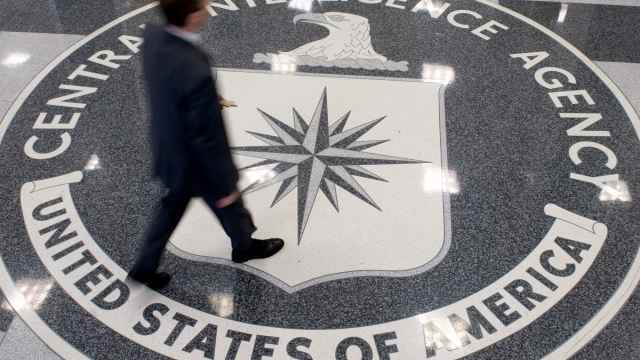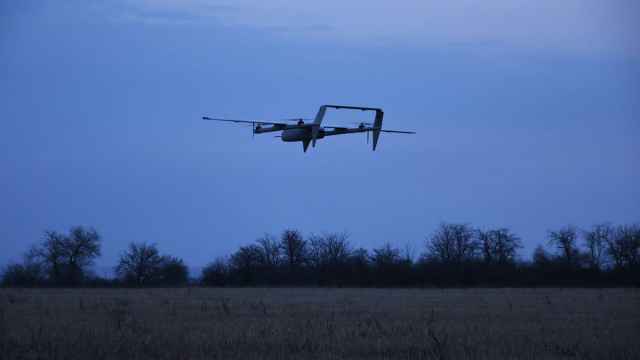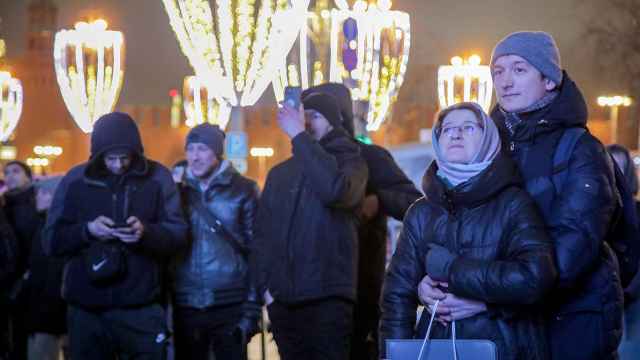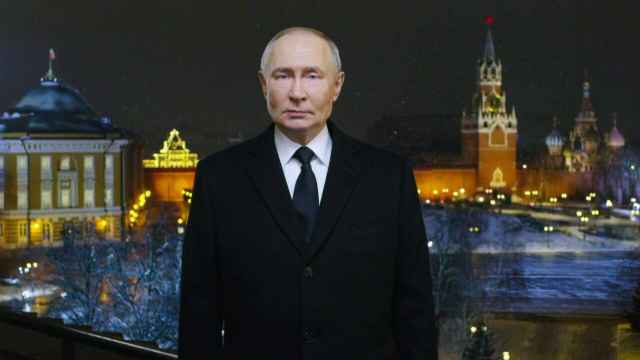President Dmitry Medvedev gave Russia's final approval to the New START nuclear arms reduction treaty with the United States on Friday and suggested that the former Cold War foes would put the pact into force within a week.
"Today I signed the ratification document relating to the strategic offensive weapons treaty," Medvedev told his presidential Security Council. "This is an important event for our entire country."
New START, signed by Medvedev and U.S. President Barack Obama last April after a year of tough negotiations, is the first U.S.-Russian nuclear arms pact in almost a decade and a crucial element in a "reset" that has improved long-strained ties.
It will commit the nations with 95 percent of the world's nuclear weapons to ceilings of 1,550 deployed strategic warheads in seven years, up to 30 percent lower than in the 2002 Moscow treaty.
It will limit each side to 700 deployed strategic missiles and bombers and establish verification rules, absent since the U.S.-Soviet Strategic Arms Reduction Treaty, or START, expired in 2009, enabling them to keep tabs on each other's arsenals.
The U.S. Senate approved ratification last month in a victory for Obama, and the Kremlin-friendly Federation Council gave its final approval in a unanimous decision Wednesday.
Medvedev said Foreign Minister Sergei Lavrov and U.S. Secretary of State Hillary Clinton would likely exchange documents starting the treaty's 10-year term in force at an upcoming meeting.
That suggested it could take place at an annual security conference being held in Munich, Germany on Feb. 4 to 6. Itar-Tass cited a Russian diplomatic source as saying the ceremony was expected to be held Feb. 5.
Once the treaty takes effect, the two nations are to begin exchanging information about the status of their nuclear forces and, within weeks, hold the first on-site inspections of each other's nuclear arsenals in nearly two years.
The White House and Kremlin say the treaty shows the world that they are serious about nuclear disarmament.
But lawmakers in both countries used the ratification process to set out conflicting interpretations of some aspects of the treaty, opening the door to serious tension over future deployments.
Russia has stressed that it could abandon the treaty if a U.S. missile shield or other weapons threaten its security.
Repeating a message he has often delivered, Medvedev told his Security Council that future ties with the West would hinge heavily on a satisfactory role for Russia in developing a European missile defense system.
But for the moment, Medvedev played down the differences set out by lawmakers as "nuances."
"The main thing, which is very important, is that the treaty … will enter into force and will determine the parameters of strategic nuclear arms reductions for the next 10 years," he said, according to a Kremlin transcript. "In the future it will be necessary to make new decisions. But that is a different story."
A Message from The Moscow Times:
Dear readers,
We are facing unprecedented challenges. Russia's Prosecutor General's Office has designated The Moscow Times as an "undesirable" organization, criminalizing our work and putting our staff at risk of prosecution. This follows our earlier unjust labeling as a "foreign agent."
These actions are direct attempts to silence independent journalism in Russia. The authorities claim our work "discredits the decisions of the Russian leadership." We see things differently: we strive to provide accurate, unbiased reporting on Russia.
We, the journalists of The Moscow Times, refuse to be silenced. But to continue our work, we need your help.
Your support, no matter how small, makes a world of difference. If you can, please support us monthly starting from just $2. It's quick to set up, and every contribution makes a significant impact.
By supporting The Moscow Times, you're defending open, independent journalism in the face of repression. Thank you for standing with us.
Remind me later.





